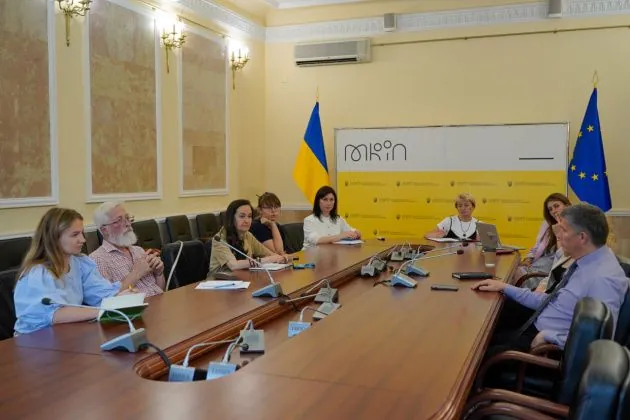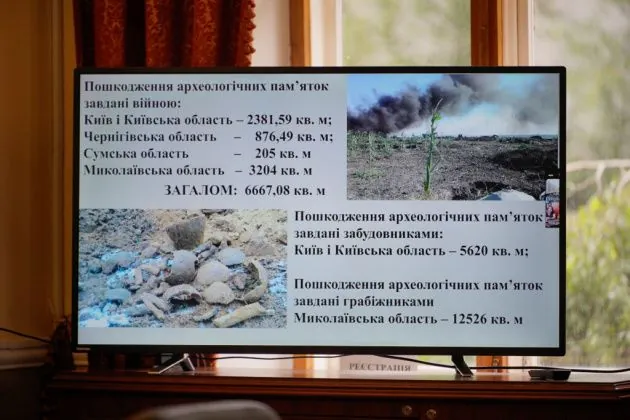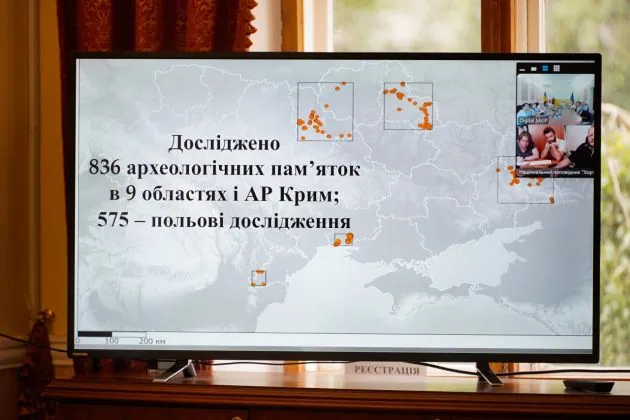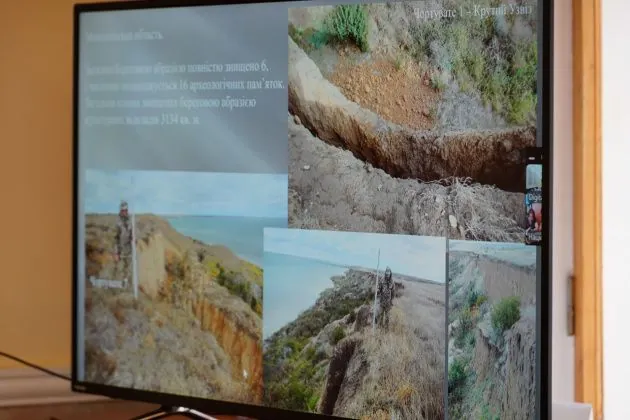UNESCO to help conduct archaeological research in the affected areas of the Kakhovka Dam
Kyiv • UNN
UNESCO will support archaeological research in the areas affected by the destruction of the Kakhovka HPP. The organization will help with monitoring, coordination, and training on recording crimes related to cultural property.

The international organization UNESCO will support Ukraine in conducting archaeological research in the areas affected by the destruction of the Kakhovka hydroelectric power plant dam by the Russians. This was reported by the press service of the Ministry of Culture and Information Policy of Ukraine, according to UNN.
Details
It is noted that on August 5, representatives of the Ministry of Culture and Information Policy of Ukraine, the UNESCO Office in Ukraine, the Institute of Archeology of Ukraine and the Khortytsia National Reserve met at the ICIP. The partners discussed archaeological research in the areas affected by one of the largest man-made disasters in Europe - the destruction of the Kakhovka hydroelectric dam by the Russians, which occurred on June 6, 2023.
The situation with regard to research in these areas is complicated by the temporary occupation of part of the Kherson region and its constant shelling by the enemy. Nevertheless, Ukrainian archaeologists, together with the military and authorities at all levels, are doing everything possible to save the surviving artifacts,
The Institute of Archeology of the National Academy of Sciences has approved monitoring work in the territories affected by the Russian invasion as one of its priorities and has already examined 836 archaeological sites.
The total area surveyed was 6667.08 square meters. Among them: Kyiv and Kyiv region - 2381.59 sq. m; Chernihiv region - 876.49 sq. m; Sumy region - 205 sq. m, Mykolaiv region - 3204 sq. m.
We will assign responsibility for the implementation of this project to the Khortytsia National Reserve, which is located near the facilities and already has a certain history of participation in the project. It is easier to solve all operational issues on site,

The head of the ICIP instructed to work out proposals for the definition of the Khortytsia National Reserve and set the task to actualize the issue of creating special units of the Armed Forces of Ukraine and the Ministry of Internal Affairs to help archaeologists work in the relevant territories, protecting them from robbery.
In addition, Karandeyev instructed to study the security capability of conducting research on the territory of the Dnipro-Bug Estuary.
We now have two areas that require urgent action. The first is more strategic. It concerns the creation of units in the Armed Forces and the Ministry of Internal Affairs that will help conduct research on the territory of the Kakhovka Reservoir. The second area is more specific and practical. We need to receive a report on the state of the archeology damaged by the destruction of the Kakhovka hydroelectric power plant by the beginning of the fall season,
The ICIP should receive a clear plan of visits to the territories where it is possible to conduct research, taking into account the security situation, she noted.
We are ready to provide comprehensive support, in particular, to facilitate cooperation between the authorities and various organizations, as well as to support this process logistically and organizationally,
UNESCO now has access to satellite imagery, which will help monitor the situation at sites in the occupied territories and can coordinate archaeological research, she explained. In addition, UNESCO is ready to conduct trainings on unified forms of recording crimes related to trafficking in cultural property.
Viktor Chabai, Director of the Institute of Archeology of the National Academy of Sciences of Ukraine, noted that it is now important to prevent the looting of the territories that became available after the destruction of the Kakhovka hydroelectric power station dam by the Russians, as far as possible for security reasons.


